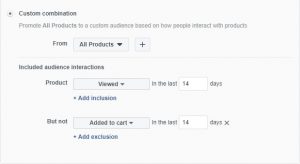
I’m not certain I want to start this post with a bunch of definitions. I’m also not sure I want to start preaching about the importance of UX or SEO.
Instead, I’ll start with a question… when looking for something online, what do you do?
Do you open Google, type in a word or phrase, and then go to the first link you see? Maybe. But is that link always what you want?
Or do you ask your phone a question and hope she gives you the right answer? Maybe. I wonder how she knew??
Or do you go to Facebook and ask your “friends?” I’m sure every answer you get is pure gold.
The point is this… no one search channel is best. They all serve different purposes at different times and places. And, does it really matter how you search? You’re only interested in the results, right?
So, it’s in Google’s best interest to deliver the best results possible. Apple wants you to rely solely on Siri because she gets you what you want. And Zuck wants Facebook to be where you spend all your time, so he wants the search results to deliver every time – whether it’s your friends or Facebook supplying those results.
Do all of these deliver every time? Nope, but they’re getting better every day. Why do you think that is?
Google’s Animal Makeover – Penguins, Pandas, and Hummingbirds
Let’s look at Google (because Apple and Facebook sure do). Over the last few years Google has been overhauling and refining its algorithms, naming them Penguin, Panda, and to some extent Hummingbird.
The goal has mainly been to improve search results. But, this wasn’t about coming up with better keyword matches.
Google wants to make sure that you’re satisfied with what they give you, which means…
- The site contains content relevant to the context of your search. Google is factoring everything it knows about you and your search into the results it displays – past search history, browsing habits, connections, favorite color, etc.
- The site loads quickly and is easy to use. Google can tell if a site is quick loading with clean code that delivers a simple and effective navigation interface. Google evens offers a useful tool to test your site speed.
- The site works on all devices (test your mobile friendliness). Google wants to make sure the sites they list work on a mobile device, desktop, tablet, TV, watch, glasses, shoe…
UX is the New SEO
All of these updates have one thing in common… UX! UX stands for user experience. How is the experience of using a website for the user? Is it easy? Does it produces the desired results?
SEO or search engine optimization is not just about keywords or meta tags or even content. Those things play a small role but search is more about user experience. Optimizing your website for search engines (in other words SEO) means focusing on the user experience…
- Does your website contain the content that your target audience is looking for?
- Is your website quick to load and easy to use on all devices?
- Is there a reason to return? Did the experience satisfy enough to justify a return visit?
- Was the experience so good that your site is recommended and linked to?
- Will people talk about your site content on social media?
I use a quote from my friend Joe Natoli of GiveGoodUX.com in any presentation or post I do on UX because he really nails it …
“UX isn’t just about users; it’s really a value loop in three parts:
- The person using the website has to perceive that it’s valuable to them.
- That perception has to be validated through use. Proof equals trust, which means they use and/or purchase.
- When both things happen, value comes back to the business/creator: increased market share, customer loyalty, money made or money saved.”
Even if you’re paying for traffic, i.e. pay per click or social media advertising, doesn’t it still make sense that you are answering yes to all of the questions above and providing that value loop Joe talks about? Of course it does.
Stop thinking about SEO as simply a battle for keywords. Google is much smarter than that and so is your target audience (Neil Patel has a spin on this you should read).
Digital & Social Articles on Business 2 Community(20)






